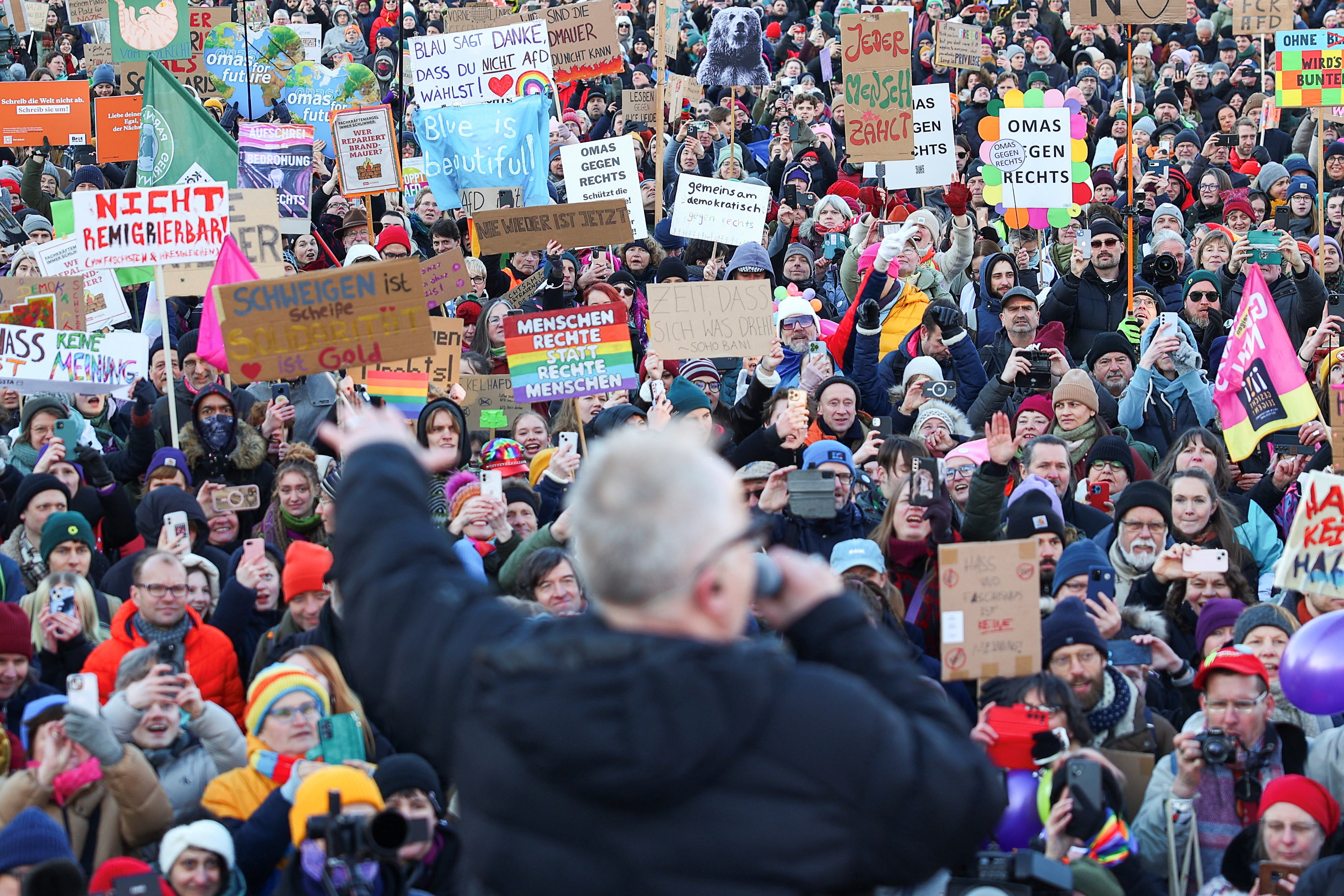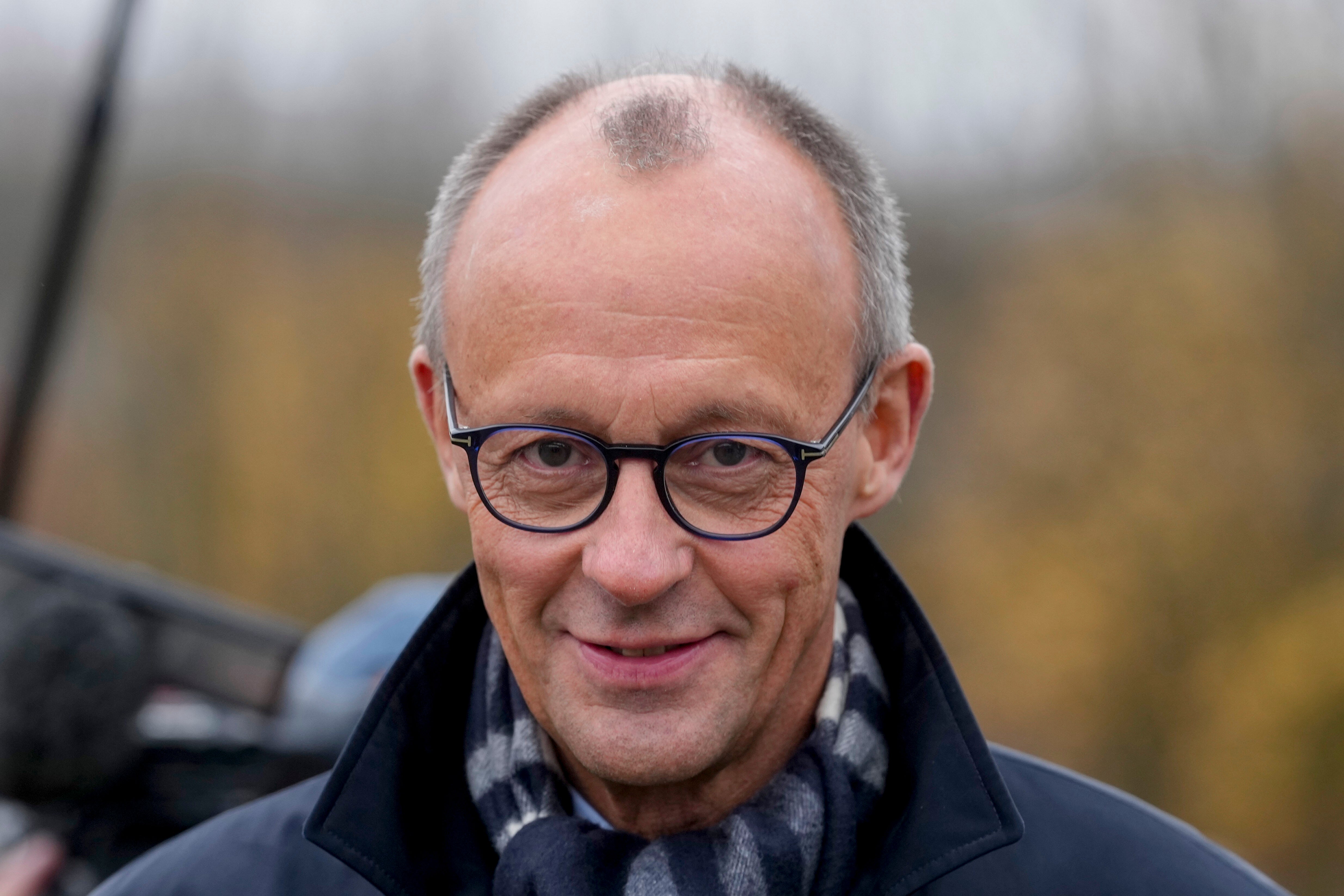The rights of Germany’s LGBTQ+ community are under attack – this election represents a watershed
For many, the focus has shifted from progress to preservation, with hard-won gains now under threat. Enrique Anarte reports

For many LGBTQ+ Germans, the upcoming elections are a source of anxiety, a fight to maintain existing rights rather than a push for new ones.
The focus has shifted from progress to preservation, with hard-won gains now under threat.
"They're talking about revoking the trans self-determination law only three months after it entered into force. It's absurd," said Jojo Ludwig, a 26-year-old social media creator who identifies as non-binary.
Ludwig, who legally changed their gender and name last year, highlights the precariousness of recent advancements in trans rights.
The new self-ID law, which allows individuals to change their legal gender and name by simply declaring the change at a local registry, represents a significant victory for trans rights.
Previously, the process was arduous and expensive, often involving years of waiting, hefty fees, and intrusive questioning by psychiatrists.
When are the German elections?
- Germany's snap election on February 23rd follows the collapse of Chancellor Olaf Scholz's coalition government.
- The election is a contest between established parties (SPD, CDU/CSU) and rising smaller parties (Greens, AfD) amidst declining support for the major two.
- Key issues include the war in Ukraine, migration concerns following violent attacks, the re-election of US President Donald Trump, and its implications for Germany.
- Current polls suggest a conservative lead, but the situation remains fluid, with smaller parties like the FDP, Linke, and BSW vying for parliamentary seats.
- The outcome will determine the next chancellor, parliament composition, and potential political alliances. The parties differ on approaches to Ukraine, economic revival, migration, energy, and relations with the US under Trump.
- Read more
Now, thousands like Ludwig have benefited from the streamlined process, but the potential reversal of this law looms large in the upcoming elections.
"The self-determination law gave me a lot of hope," Ludwig said.
"I can finally live as the person I really am, and my identity documents say it."
But now they fear the 23 February federal election risks roiling all that, ushering in a new era of repression and prejudice.
Indeed many gay and trans activists fear the country is about to perform a 180-degree turn on LGBTQ+ rights when voters choose a new parliament this month.
Polls place the conservative CDU/CSU bloc first with 29-30 per cent of the votes, followed by the far-right Alternative for Germany (AfD), which could secure around 20-21 per cent, becoming - for the first time - the No. 2 party in the Bundestag, the lower house of the German parliament.
CDU leader Friedrich Merz and Germany's likely next chancellor has repeatedly ruled out forming a coalition government with the far-right party.

But he recently shattered a taboo against working with the AfD when he pushed a migration resolution through parliament with the help of the far-right, breaking the so-call "firewall".
That collaboration has let a dangerous genie out of the bottle, activists say, and they worry the repercussions could spread well beyond the sphere of LGBTQ+ rights.
"Whoever does it once, does it twice, and three times," said Andre Lehmann, board member at Germany's LGBTQ+ umbrella group LSVD.
"It's not only a threat for LGBTI people in Germany, but for many, many people in this country, and for democracy as a whole."
‘Gender ideology’ under fire
Despite the fact its candidate for chancellor is openly lesbian, AfD has become the loudest voice against LGBTQ+ rights in parliament, and even filed a motion to repeal same-sex marriage and adoption in 2017.
The party's election manifesto calls for minors to be protected from what it calls "the trans cult, early sexualization and gender ideology".
Among other plans, AfD wants to ban gender-affirming care, such as puberty blockers and hormone therapy, for trans minors.
It also wants to revoke 2024's self-identification law, cut funding for the "indoctrination of children and young people" and end "woke ideology-based development projects" abroad.
While the far-right party alone will likely not have enough seats to push these demands forward, many fear the recent collaboration on migration could see the CDU/CSU joining AfD to pass new LGBTQ+ rights restrictions nationally - just as they have already done at the state level.
Many of AfD's LGBTQ-related demands overlap with those of the conservatives, be it reversing the trans self-determination law or restricting the use of inclusive language and gender-affirming care for minors.
"German politics is at a crossroads. Some parties are not only trying to freeze the status quo as before, but they also seek to take given rights away," said Constantin Wurthmann, a political scientist at the University of Mannheim who researches LGBTQ+ politics.
"From my perspective, I don't see that the queer community and the rest of the population understand what's really happening right now, and what consequences might arise from this election."
For many LGBTQ+ Germans, this election is not just a matter of what could be lost, but also about what other reforms might be delayed - again - as national politics shift to the right.
When it took power in 2021, a coalition between the centre-left SPD, the Greens and the liberal FDP promised to fully ban conversion therapy, include anti-discrimination protections in the constitution and give lesbian couples equal parenting rights, among other things.
They passed a trans self-determination law and also revoked a ban on gay and bi men donating blood, but they ran out of time to legislate on other promises, including compensation for what activists call "forced sterilisations".
"I feel a mixture of rage and resignation," said Cathrin Ramelow, a 61-year-old trans woman.
Ramelow has spent more than two decades campaigning for the state to compensate trans Germans who were made to choose between the right to legal documents that matched their gender identity or the chance to have children.
She was one of at least 10,000 people forced to become "permanently sterile" in order to change legal gender - a measure that was struck down in 2011, according to the Bundesverband Trans* advocacy group.
Others were forced to divorce their partners until that requirement was also struck down in 2009.
Germany's outgoing government promised to compensate both groups, but were not able to table a bill pre-election.
Now these promises will likely be buried, activists say.
Even if the CDU/CSU does form a coalition with the SPD or the Greens, the conservatives oppose extending those LGBTQ+ rights measures that have already been promised, according to a questionnaire of Germany's main parties.
Irrespective of the election results, or what threat politicians might pose, Ludwig and Ramelow said the scale of recent protests against the CDU-AfD cooperation gave hope that many ordinary Germans still had their backs.
"Thousands of people have shown in the streets that they're against this," Ramelow said, recalling recent rallies near her home in the coastal town of Wilhelmshaven.
"We are here - and every time there's more of us," Ludwig said.
Bookmark popover
Removed from bookmarks